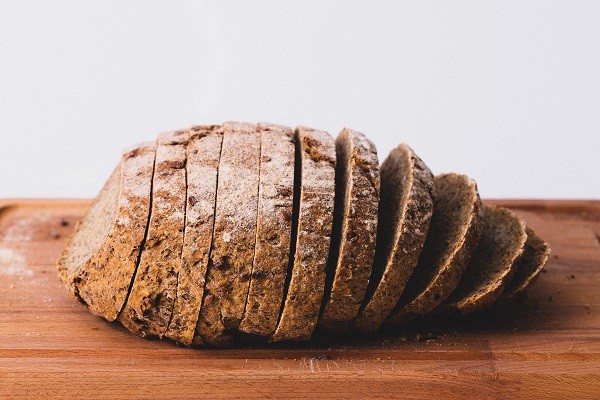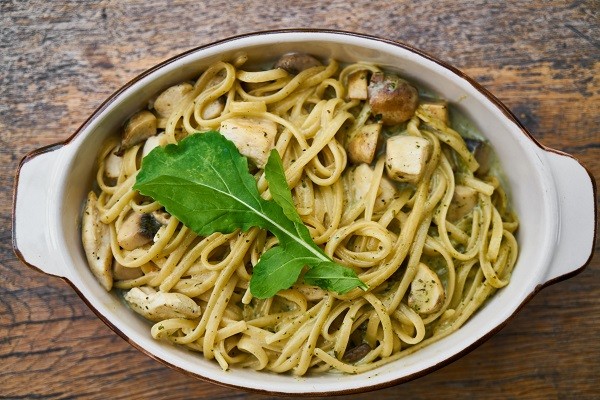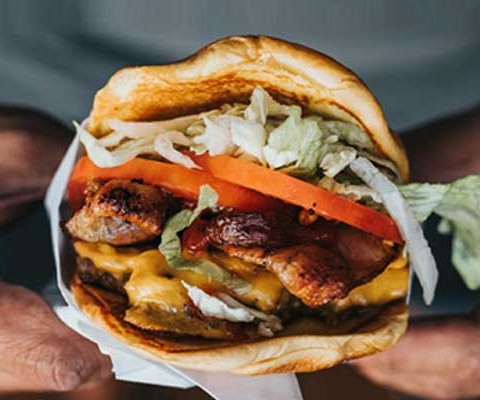5 Myths About Fat Loss Holding Your Diet Back

1. Fat loss Myths to ignore: Cardio on an empty stomach helps you burn more fat
The notion here is that by doing cardio on an empty stomach, you'll tap right into fat stores and thus lose weight faster. It sounds possible, but it's not largely supported by science.
The research into this question actually shows the total opposite: a meal before training can give you more energy to perform the exercise! And with more fuel in your tank, the greater your output and potentially, your fat loss results.
This myth may stem from other research that shows cardio in a fasted state can lead directly to more fat burnt. Wait, what?! So fasted cardio is better?
At the end of the day -- no!
Just because more fat loss is burned in a given period of cardio, doesn't mean it's going to be any better at the end of the day. This is because your body is very clever with its various mechanisms for utilising fuel. If you happen to burn more fat in one sector of the day, your body will make up for it by burning a higher amount of carbohydrates in another.
What governs fat loss is eating in a calorie deficit consistently over a long period, and not any additional fat burnt during fasted morning cardio (that your body ultimately evens out at the end of the day anyway). The bottom line is if you like fasted cardio and it doesn't bother you, then do it. But science says: you won't be experiencing superior results.
2. Breakfast is the most important meal of the day: eat it to kick start your metabolism
Such a myth was born out of the marketing headquarters at a large cereal brand. It sold cereal, but it wasn't supported by science!
The truth is, eating first thing in the morning to "kick start" your metabolism isn't correct. Research shows you simply won't burn any more fat.
Another study was done on 283 adults and found no difference between those who ate breakfast and those who abstained.
Again, it comes down to your personal preference: if you enjoy eating breakfast and it fits within your daily macronutrient amount, then keep eating it! But doing so doesn't give you any metabolic advantages.
3. Don't eat carbohydrates -- they make you fat.
Can you believe that still in today's day and age with all the research we have -- people still tout this as truth!
It was once thought that the resulting spike in insulin from eating carbohydrates meant the fat-storing tap turned on right away.
But it's not true. Fat is stored simply when you eat more calories than you burn.

Here are some scientific truths:
- When a diet is 77% carbohydrates and tuned to a calorie deficit, these apparent evil surges of insulin make made no difference (8). Weight loss is observed the same as in any other scenario.
- Whey protein spikes insulin also and is actually more insulinogenic than white bread! Whey protein powder is not associated with weight gain, so why carbohydrates?
- And further to insulin, whether your carbohydrates are low or high GI, it will make no difference to your end fat loss.
Another study examined a diet HIGH in carbohydrates and LOW in carbohydrates but set to a calorie deficit. It would let us know if a high carbohydrate fat loss diet really led to more fat gain. And what did they find? Just like the study in the first bullet point above -- no differences in fat loss! The scientists concluded:
"Reduced-calorie diets result in clinically meaningful weight loss regardless of which macronutrients they emphasize."
It boils down to this: If you get enough protein and still eat in a calorie deficit -- carbohydrates WILL NOT make you fat! They are critical for energy and your workouts and are too often unfairly vilified!
4. Carbs before bed make you fat
This is another myth that makes sense in theory but doesn't in research: if you don't "burn off" your ingested carbs they'll turn straight to body fat.
It. Won't. Happen.
Surprisingly, your metabolism actually speeds up when you go to bed. It doesn't get slower. So, you're actually burning more calories whilst you're sleeping, as your body is busy turning over new proteins and recovering.
Further research found that when subjects ate 80% of their carbohydrates at night, they lost more fat and had higher levels of the hormone leptin. You might remember reading about leptin here before; leptin is a hunger regulating hormone. The more you have the less hungry you are.
And if you have trouble sleeping, and/or need any more convincing that consuming carbohydrates is ok later in the day -- let us add that carbohydrates before bed can improve your sleep! This is due to their ability to bolster tryptophan and serotonin, two brain chemicals that facilitate shut-eye.
So don't shy away from carbohydrates before bed; they can serve you well in the right context.

5. A calorie is a calorie: eat less than your body burns, and you'll lose weight.
This myth flies in the face of key scientific findings pertaining to protein. Yes, eating less than your body burns is how to lose weight. But we must keep in mind that protein is a vital ally when it comes to fat loss, because:
- It beats out carbohydrates and fat when it comes to keeping you full
- It has just 4 calories per gram, compared to fat's 9 calories per gram (carbohydrates also has 4 calories per gram).
- Your body burns more calories digesting protein than carbohydrates or fat. In fact, it costs 30% of the value of the protein you eat, for your body to digest. So, if you eat 100 calories from protein, you're only, in fact, eating ~70 calories. For fat, that number is a dismal 0-3%, and 5-10% for carbohydrates.
Not convinced? Few gym rats will ever forget the research that overfed resistance-trained subjects 800 calories from whey and casein protein. To be clear about this, they were fed 800 MORE calories than their body burns, via protein. And guess what happened? They didn't gain any weight.
This is simply because not all calories are created equal: it is metabolically costly to digest protein. Scientists refer to this as the thermogenic effect of food.
So, if you're hungry, a lean protein source is terrific at keeping you full, and better at potentially preventing any fat gains. That's why lean protein diets are always recommended for fat loss!
We hope these fat loss myths no longer hold you back and assist you in moving forward with your weight loss goals!
Further Supplement Myths...
References:
- Afaghi A, O'Connor H, Chow CM. High-glycemic-index carbohydrate meals shorten sleep onset. Am J Clin Nutr. 2007 Feb;85(2):426-30. doi: 10.1093/ajcn/85.2.426. Erratum in: Am J Clin Nutr. 2007 Sep;86(3):809. PMID: 17284739.
- Antonio J, Peacock CA, Ellerbroek A, Fromhoff B, Silver T. The effects of consuming a high protein diet (4.4 g/kg/d) on body composition in resistance-trained individuals. J Int Soc Sports Nutr. 2014 May 12;11:19. doi: 10.1186/1550-2783-11-19. PMID: 24834017; PMCID: PMC4022420.
- Bellisle F, McDevitt R, Prentice AM. Meal frequency and energy balance. Br J Nutr. 1997 Apr;77 Suppl 1:S57-70. doi: 10.1079/bjn19970104. PMID: 9155494.
- Calcagno M, Kahleova H, Alwarith J, Burgess NN, Flores RA, Busta ML, Barnard ND. The Thermic Effect of Food: A Review. J Am Coll Nutr. 2019 Aug;38(6):547-551. doi: 10.1080/07315724.2018.1552544. Epub 2019 Apr 25. PMID: 31021710.
- Claessens M, Calame W, Siemensma AD, van Baak MA, Saris WH. The effect of different protein hydrolysate/carbohydrate mixtures on postprandial glucagon and insulin
- Dhurandhar EJ, Dawson J, Alcorn A, Larsen LH, Thomas EA, Cardel M, Bourland AC, Astrup A, St-Onge MP, Hill JO, Apovian CM, Shikany JM, Allison DB. The effectiveness of breakfast recommendations on weight loss: a randomized controlled trial. Am J Clin Nutr. 2014 Aug;100(2):507-13. doi: 10.3945/ajcn.114.089573. Epub 2014 Jun 4. PMID: 24898236; PMCID: PMC4095657.
- Manore, M. M. (2012). Dietary Supplements for Improving Body Composition and Reducing Body Weight: Where Is the Evidence?, International Journal of Sport Nutrition and Exercise Metabolism, 22(2), 139-154. Retrieved Mar 18, 2021, from https://journals.humankinetics.com/abstract/journals/ijsnem/22/2/article-p139.xml.
- Mischler I, Vermorel M, Montaurier C, Mounier R, Pialoux V, Péquignot JM, Cottet-Emard JM, Coudert J, Fellmann N. Prolonged daytime exercise repeated over 4 days increases sleeping heart rate and metabolic rate. Can J Appl Physiol. 2003 Aug;28(4):616-29. doi: 10.1139/h03-047. PMID: 12904638.
- National Research Council (US) Committee on Diet and Health. Diet and Health: Implications for Reducing Chronic Disease Risk. Washington (DC): National Academies Press (US); 1989. 6, Calories: Total Macronutrient Intake, Energy Expenditure, and Net Energy Stores. Available from: https://www.ncbi.nlm.nih.gov/books/NBK218769/
- responses in healthy subjects. Eur J Clin Nutr. 2009 Jan;63(1):48-56. Epub 2007 Sep 12.
- Sacks FM, Bray GA, Carey VJ, Smith SR, Ryan DH, Anton SD, McManus K, Champagne CM, Bishio LM, Laranjo N, Leboff MS, Roos JC, de Jonge L, Greenway FL, Loria CM, Obarzanek E, Williamson DA. Comparison of weight-loss diets with different compositions of fat, protein, and carbohydrates. N Eng J Med. 2009 Feb 26;360(9): 859-73. doi: 10.1056/NEJMoa0804748.
- Salehi A, Gunnerud U, Muhammed SJ, Ostman E, Holst JJ, Björck I, Rorsman P. The insulinogenic effect of whey protein is partially mediated by a direct effect of amino acids and GIP on beta-cells. Nutr Metab (Lond). 2012 May 30;9(1):48.
- Schoenfeld, B.J., Aragon, A.A., Wilborn, C.D. et al. Body composition changes associated with fasted versus non-fasted aerobic exercise. J Int Soc Sports Nutr 11, 54 (2014). https://www.tandfonline.com/doi/full/10.1186/s12970-014-0054-7
- Shintani TT, Beckham S, Brown AC, O'Connor HK. The Hawaii Diet: ad libitum high carbohydrate, low fat multi-cultural diet for the reduction of chronic disease risk factors: obesity, hypertension, hypercholesterolemia, and hyperglycemia. Hawaii Med J. 2001 Mar;60(3):69-73. PMID: 11320614.
- Soenen S, Westerterp-Plantenga MS. Proteins and satiety: implications for weight management. Curr Opin Clin Nutr Metab Care. 2008;11:747–751. doi: 10.1097/MCO.0b013e328311a8c4.
- Sofer S, Eliraz A, Kaplan S, Voet H, Fink G, Kima T, Madar Z. Changes in daily leptin, ghrelin and adiponectin profiles following a diet with carbohydrates eaten at dinner in obese subjects. Nutr Metab Cardiovasc Dis. 2012 Aug 14.
- van Baak MA. Meal-induced activation of the sympathetic nervous system and its cardiovascular and thermogenic effects in man. Physiol Behav. 2008;94:178–86.
- Vieira, A. F., Costa, R. R., Macedo, R. C. O., Coconcelli, L., & Kruel, L. F. M. (2016). Effects of aerobic exercise performed in fasted v. fed state on fat and carbohydrate metabolism in adults: a systematic review and meta-analysis. The British Journal of Nutrition, 116(7), 1153–1164. https://www.tandfonline.com/doi/full/10.1186/s12970-014-0054-7
- Wadden TA et al. A two-year randomized trial of obesity treatment in primary care practice. N Engl J Med. 2011 Nov 24;365(21):1969-79. doi: 10.1056/NEJMoa1109220. Epub 2011 Nov 14.
Related Blogs

Flexible Dieting: The Downsides of Processed Food Intake
Posted by Jackson Peos
Estimated reading time: 7 minutes

Is Spot Reduction Actually a Myth?
Posted by Bulk Nutrients
Estimated reading time: 7 minutes

Is the “Clean Bulk” a Myth or Can It Actually Be Achieved?
Posted by Bulk Nutrients
Estimated reading time: 5 minutes














































